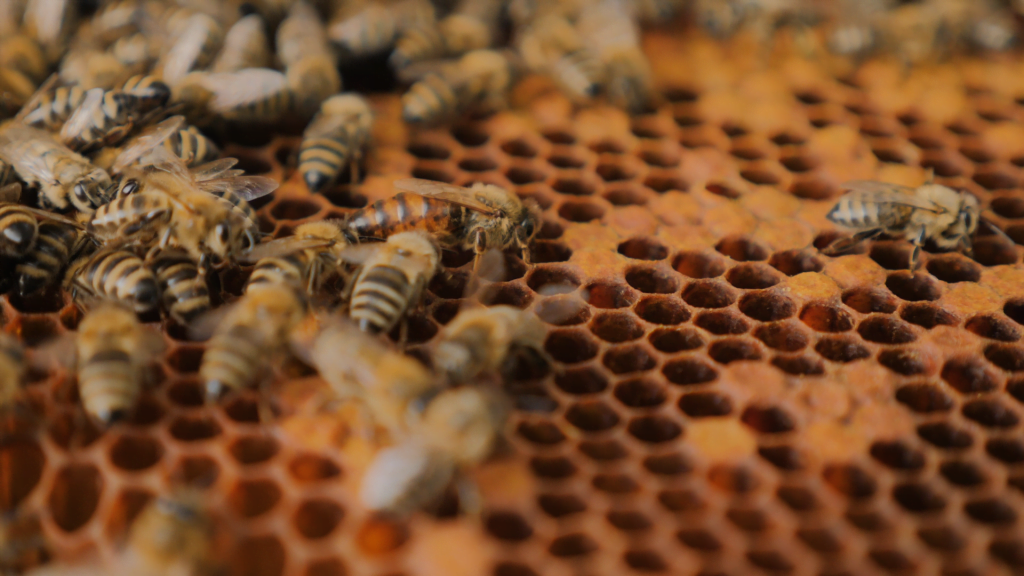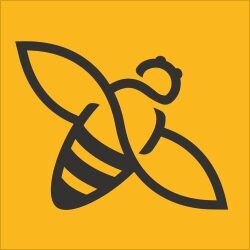BEE HIVE MONITORING
1. „AN INSULATED HIVE IS BETTER.”
FACT: Some beekeepers use insulated hives, others uninsulated. The two groups are constantly debating what is better. Insulated hives are larger, heavier, and more difficult to maintain. Uninsulated hives have poorer thermal insulation. Beekeepers with insulated hives argue that bees need to keep as much heat as possible in winter. In the summer, they need protection from overheating from the sun so that they do not have to cool so much and can produce more honey and not weaken themselves. Beekeepers who have uninsulated hives say their bees don’t mind. And what is the real truth? Research confirms that bees do not care. In winter, they do not heat the entire hive area at all, they only heat the cluster, into which they retract, and outside it can easily be the negative temperature. Don’t worry about what type of hive you have. What is important is, that you can work well with it.
2. „A MATED MOTHER WILL HAVE OFFSPRING THAT TEND TO SWARM.”
FACT: Many bee owners believe that swarmed mothers carry genetic material, which causes a tendency to swarm. Extensive research on this topic has shown that this is not true. There was no measurable tendency for bees to swarm from mothers, that swarmed.
3. „AGGRESSIVE BEE COLONIES WILL BRING MORE HONEY.”
FACT: Beekeepers try to breed mild mothers, and on the other hand, the prevailing claim is that hives with mild mothers do not produce as much honey as more aggressive hives. No research has shown any dependence of honey production on the mood of bee colonies.
4. „BEES MUST NOT OPEN IN WINTER.”
FACT: Beekeepers try not to open bees during winter. In the period from about the end of August to March of the following year, they basically have no idea what is happening to the bees. Beekeepers feel that if they look at the hive, the cold disturbance will be such that the bees will perish 100%. However, bees are relatively active during this period. They don’t mind a brief look at the hive at all, even when it’s -10˚C out. What the bees really disturb are the shocks. They react to them with excitement and if they last too long, they can disrupt the winter cluster. Then the bees spread around the hive and freeze.
5. „THERE MUST NOT BE TOO MANY HIVES ON THE APIARY”
FACT: Beekeepers say bees will starve if there are too many in a one area. They claim that the country is overpopulated and that it has an impact on honey production. But the reality is that there are apiaries where there are several thousand hives in one place. The bees can cover an area of 100 million m2 around their hive, so there is virtually no risk of overcrowding. What could be the problem is rather the greed of the beekeeper, who takes all their honey during the honey harvest. If at a given time the bees have nowhere to carry nectar from, then they really are starving.
6. „AN EXPERIENCED BEEKEEPER WILL ADVISE ME“
FACT: An experienced beekeeper can advise you, but it is very difficult for him. He doesn’t know your bees, he doesn’t know what you’ve done to them and he doesn’t know how they behaved over time. Hives are a complex organism and it is important to know the whole context. It’s like coming to the doctor and he would diagnose your children based on your description. It is important that you understand the bees and that you can objectively measure what is happening to them.
7. „CARING FOR BEES IS CHALLENGING“
FACT: People, and even beekeepers, think that caring for bees is challenging. It is widely accepted that it is time consuming, costs a lot of money and requires a lot of experience and theoretical knowledge. This view prevails for three reasons:
1. People are afraid of bees,
2. People do not understand the life of bees,
3. Beekeepers make incorrect interventions in hives.


“Just as the queen bee, the highest-ranking, peerless creature of her hive, is surrounded by lowly drones to please her, whereas the workers produce honey, the same way is the one who sits on the throne an equal only to himself, and no one’s companion.”
